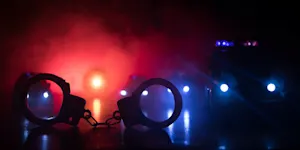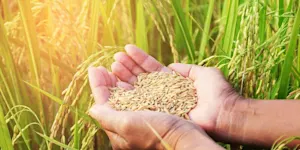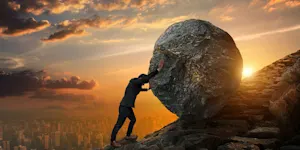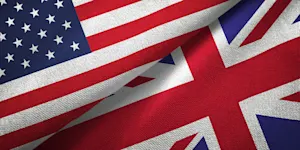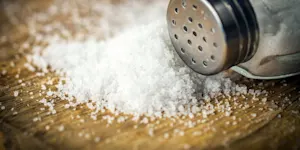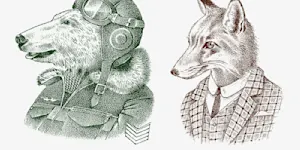What Makes This Word Tick
Ah, "cascade" – a word that flows as gently as the mountain streams it often describes. It's a noun and a verb with dual lives: one as a water-based spectacle and another as a chain reaction. Whether it's a picturesque waterfall or the ripple effect from a dropped pebble, cascade paints a vivid picture of nature’s graceful movements and life's interconnected events.
If Cascade Were a Person…
Cascade would be that friend who’s always on the move, but in the most elegant way. You can count on them to initiate the festivities or drive a conversation from a single thought to an engaging dialogue. Effortlessly poised, Cascade has a knack for turning even the quietest gatherings into lively occasions with their infectious energy and charm.
How This Word Has Changed Over Time
Originally rooted firmly in the realm of waterfalls, "cascade" has leapt beyond its watery origins. Over the centuries, it's evolved to depict anything spreading rapidly, whether it’s information in the digital age or a passionate movement sweeping across a crowd. This transformation reflects our ever-expanding understanding of how ripples of change can flow through society.
Old Sayings and Proverbs That Use Cascade
Although not as common as some idioms, the spirit of cascade lives on in sayings like "ripple effect" or "domino effect." Both capture the essence of cascade's ability to set off a chain of events. The imagery of a cascade can also be found in age-old wisdom reminding us that the small actions we take can have far-reaching impacts.
Surprising Facts About Cascade
Did you know that cascades aren’t just found in nature? Urban planners sometimes construct artificial waterfalls—also called cascades—as a way to bring serenity and beauty to bustling cities. Plus, in the world of coding, a cascade is a series of operations that depend on each other, showcasing this word’s versatility across disciplines.
Out and About With This Word
Take a hike near any mountainous region, and you're likely to encounter a natural cascade, perfect for a moment of reflection or a photo op. If you’re a traveler at heart, Niagara Falls might already be on your list—the ultimate cascade experience. In urban landscapes, fountains often mimic cascading water to bring a touch of the natural to our concrete surroundings.
Pop Culture Moments Where Cascade Was Used
Cascades have made their mark in pop culture too. In movies, they often provide dramatic backdrops or moments of tranquil beauty. And let's not forget the time when “cascade” inspired a line of beauty products promising to “cascade” your hair with lots of body and bounce—a nod to the continuous flow theme.
The Word in Literature
"Cascade" frequently finds its place in descriptive passages or to metaphorically describe emotions and events. In literature, you might see it in romantic scenes or moments of overwhelming emotion, much like how love can cascade through a narrative, touching each character it encounters.
Moments in History with Cascade
Imagine the spread of the Renaissance: an intellectual cascade that began in Italy and swept through Europe, carrying with it revolutionary ideas that transformed art and science. The word could easily paint the same picture of interconnected growth and impact that defined this vibrant period.
This Word Around the World
Across the globe, "cascade" translates into various languages often tied to water imagery. In France, it’s "cascade," just pronounced a bit more suavely. In Japan, you might hear "shunjun" if you’re looking at a cascade in poetry, capturing the beauty of flowing water through different lenses of culture.
Where Does It Come From?
"Cascade" derives from the Italian "cascata," meaning waterfall, rooted in "cascare," to fall. It's a fitting origin for such a fluid and dynamic term that’s gracefully tumbled across languages and contexts over the centuries, from scenic vistas to expressive narratives.
How People Misuse This Word
Some mistakenly use "cascade" to describe any water feature, even when a "fountain" or "geyser" would be more apt. It also gets confused when describing sequences—beware, not all sequential events are fittingly "cascades."
Words It’s Often Confused With
Cascading: Often used interchangeably, but "cascading" emphasizes the action or process.
Waterfall: A more specific term for a single drop of water, while cascade covers broader water phenomena.
Avalanche: Though similar in triggering a series of events, avalanches involve snow rather than water.
Additional Synonyms and Antonyms
Synonyms include: waterfall, rapids, torrent, and overflow when describing water. For series, consider sequence, or succession. Antonyms might be stillness or stagnation, since a cascade is all about movement and flow.
Want to Try It Out in a Sentence?
Imagine a joyous celebration with friends: "The laughter cascaded through the room, bringing warmth and a sense of connection." Add a touch of elegance to your vocabulary with this versatile word!




